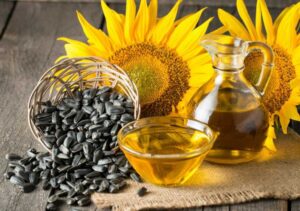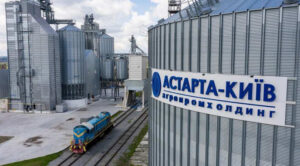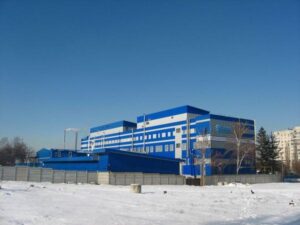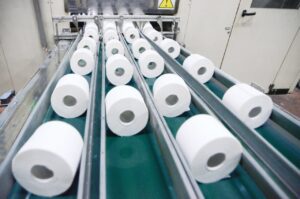
On November 19, PJSC Ukrnafta and TAS Insurance Group signed a contract for voluntary medical insurance (VMI) for employees, according to the Prozorro electronic public procurement system.
It is also noted that the place of performance of works or services: Ukraine, and the deadline: September 10, 2025. The contract is worth UAH 9.261 million.
As reported, at the end of August 2024, Ukrnafta announced its intention to enter into a voluntary health insurance agreement with TAS Insurance Group. The company’s price offer amounted to UAH 18.521 million, with the expected cost of the services procurement at UAH 18.709 million. The service delivery date is July 4, 2025.
TAS Insurance Group was registered in 1998. It is a universal company that offers its customers more than 80 types of insurance products in various types of voluntary and compulsory insurance. It has an extensive regional network: 28 regional directorates and branches and 450 sales offices throughout Ukraine.
Quotes of interbank currency market of Ukraine (UAH for $1, in 01.07.2024-30.07.2024)

Open4Business.com.ua

In January-September 2024, MHP, Ukraine’s largest chicken producer, reduced sales of sunflower oil by 11% compared to the same period in 2023, to 330.24 thousand tons.
“The decline is primarily due to a change in the recipe for oilcake production, which led to a decrease in oil production,” the holding company said in a report to the London Stock Exchange.
“In January-September 2024, MHP also reduced sales of soybean oil by 9% compared to the same period in 2023, to 35.46 thousand tons.
Revenue of the vegetable oils segment in January-September 2024 decreased by 27% to $355 mln, which led to a decrease in adjusted EBITDA (excluding IFRS 16) to $42 mln compared to $71 mln in the same period last year, which the agricultural holding explains by a decline in both world oil prices and sales volumes.
“MHP is the largest chicken producer in Ukraine. The company produces cereals, sunflower oil, and processed meat products.
As reported, the company received $142 million in net profit in 2023 compared to $231 million in net loss a year earlier. The group’s revenue last year increased by 14% to $3.021 billion.
In the third quarter of this year, MHP earned $96 million in net profit, which is 75% higher than in the third quarter of 2023, while revenue increased by 5% to $773 million, gross profit grew by 47% to $249 million, operating profit by 62% to $154 million, and adjusted EBITDA by 56% to $173 million.

The International Finance Corporation (IFC) of the World Bank Group is considering a $40 million loan and a $40 million parallel loan to Ukraine’s largest sugar producer, Astarta, for the construction of a soy protein concentrate plant in Poltava region.
“The proposed investment is an IFC A loan of up to $40 million and a parallel loan of up to $40 million to Astarta Agro Protein Ukraine LLC, a subsidiary of Astarta Holding PLC, to finance the capital expenditures for a prospective soy protein concentrate (SPC) plant in Central Ukraine,” IFC said on its website.
It is noted that IFC has already assisted the agricultural holding in conducting market research, preparing a business plan for the project, and assessing its commercial viability in order to interact with potential investors.
It is specified that the IFC Board of Directors plans to consider this project on December 20 this year.
As reported, in 2024, Astarta began investing in the construction of a plant for processing soybean meal into soy protein concentrate with a capacity of 500 tons per day (about 100 thousand tons per year) in the Globinsky Industrial Complex (Poltava region). The agricultural holding will invest over EUR76 million in equipment and technology and create 110 new jobs.
“Astarta and its structural unit Astarta Agro Protein signed the first investment agreement with the Ukrainian government to receive compensation from the state for significant investments. As part of the agreement, the government will provide the agricultural holding with a number of incentives, including exemptions from import duties on new equipment, import VAT on new equipment and income tax for up to 5 years.
IFC recalled that Astarta commissioned a soybean processing plant in Globyno in December 2013. In 2023, it processed 232 thousand tons of soybeans, 73% of which were grown by the agricultural holding, and produced 172 thousand tons of soybean meal. In the first half of 2024, the share of the plant’s own raw materials increased to 90%.
Soy concentrate is produced by processing soybean meal with higher added value. It is used as a raw material for animal feed production.
If approved, this will be IFC’s fifth investment in Astarta since 2012.
“Astarta is a vertically integrated agro-industrial holding company operating in eight regions of Ukraine. It includes six sugar factories, agricultural enterprises with a land bank of 220 thousand hectares and dairy farms with 22 thousand cattle, an oil extraction plant in Globyno (Poltava region), seven elevators and a biogas complex.
In 2023, the agricultural holding reduced its net profit by 5.0% to EUR 61.9 million, and its EBITDA decreased by 6.1% to EUR 145.77 million, while revenue increased by 21.3% to EUR 618.93 million.
“In January-September 2024, Astarta increased its net profit by 35.1% to EUR75.60 million, EBITDA by 12.8% to $131.56 million, with revenue up 12.6% to EUR441.46 million.

PrJSC Lekhim-Kharkiv, a member of the Lekhim Pharmaceutical Group (Kyiv), increased its net profit by 6.9 times in January-June 2024 compared to the same period in 2023, to UAH 29.894 million.
As the company reported in the information disclosure system of the National Securities and Stock Market Commission (NSSMC), net sales revenue in January-June 2024 increased by 46.5% to UAH 369.934 million.
As reported, in 2023, Lekhim-Kharkiv PrJSC reduced its net profit by 6.9 times to UAH 15.169 million, while net sales revenue in 2023 decreased by 10.6% to UAH 560.38 million. At the same time, the company’s sales in 2023 amounted to UAH 430.124 million in the domestic market (88.29% of total sales), sales in non-CIS countries amounted to UAH 38.464 million (7.90% of total sales), and in the neighboring countries the company sold products worth UAH 18.6 million (3.82% of total sales).
Lekhim JSC owns 100% of Lekhim-Obukhiv LLC, 98.2% of Lekhim-Kharkiv PrJSC, 81% of Technolog (Cherkasy region), 100% of Lekhim-Vilnius CJSC and 100% of Lekhim’s foreign representative office in Uzbekistan.

In January-October 2024, Ruta, a major Ukrainian manufacturer of sanitary and hygienic paper products, whose management company is VGP JSC (Lutsk), produced products worth UAH 1 billion 434.6 million, up 6.6% compared to the same period in 2023.
According to Ukrpapir’s statistics provided to Interfax-Ukraine, the company has thus maintained a positive production trend over the past 10 months compared to the same period last year, which it reached in the first nine months of the year.
In physical terms, the company’s production of toilet paper in rolls, which slightly decreased, amounted to 110.73 million units, which remains the third best result in the industry after Kyiv Cardboard and Paper Mill (224.5 million units) and Kokhava Paper Mill (113.4 million units).
The company produces pulp-based sanitary and hygiene products from imported base paper.
VGP’s portfolio includes dry and wet wipes, toilet paper, paper handkerchiefs, and kitchen towels. The assortment includes more than 180 items.
As reported, in 2023, VGP JSC produced products worth UAH 1 billion 611 million, which is 64.8% more than in 2022.